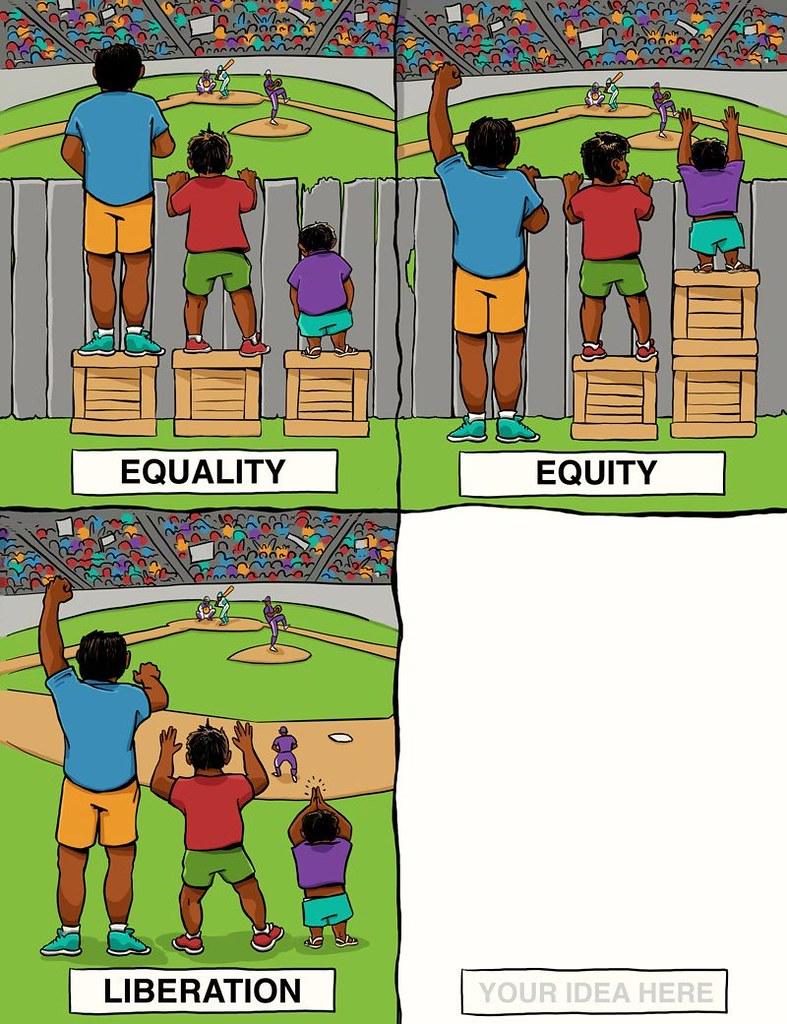2 Equity
In education, the term equity refers to the principle of fairness . While it is often used interchangeably with the related principle of equality , equity encompasses a wide variety of educational models, programs, and strategies that may be considered fair, but not necessarily equal. [8] In other words, equity means making sure every student has the support they need to be successful.
Equity in education “requires putting systems in place to ensure that every child has an equal chance for success. That requires understanding the unique challenges and barriers faced by individual students or by populations of students and providing additional supports to help them overcome those barriers. While this in itself may not ensure equal outcomes , we all should strive to ensure that every child has equal opportunity for success.”[1] Unlike equity, equality ignores the fact that different people begin with different resources and barriers, and therefore will need more or less support as a result.[2]

Other images have been created that show that equity isn’t quite that simple and often what is creating the inequity is not characteristics of the person (such as height as shown in the image), but in the system. Systemic oppression and unearned privilege are addressed in later chapters of the book
Why Does Educational Equity Matter?
When we think of a fair and just society one of the defining characteristics is likely to be that all individuals have equal opportunity to realize their potential, irrespective of the circumstances into which they are born. Education plays a critical role in determining whether or not individuals are given this opportunity. There are a range of reasons why good educational outcomes matter, from the individual; better health and longer life, to the societal; greater social cohesion, inclusion and trust; to the economic, productivity, economic growth, innovation, social wealth and reduced welfare costs. For a society or nation committed to ‘creating a fair and egalitarian place in which opportunities exist for all’, education is a key lever or vehicle through which this can occur.[3]
Adaptation Credit
Adapted from Looking at Diversity, Equity, and Inclusion in the open textbook The Role of Equity and Diversity in Early Childhood Education by Krischa Esquivel, Emily Elam, Jennifer Paris, & Maricela Tafoya. CC BY license.
- Thought Leaders. (2018). Equity in Education: What it Is and Why it matters. Retrieved from https://www.thinkingmaps.com/equity-education-matters/ ↵
- Theme, B. (n.d.). Diversity, Equity, and Inclusion [blog post]. CC BY 4.0 ↵
- ACT Government. (n.d.). The future of Education. https://www.education.act.gov.au/__data/assets/pdf_file/0010/1234657/Future-Of-Education-Why-does-educational-equity-matter.pdf ↵

